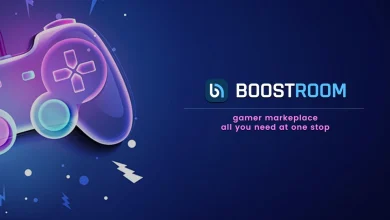Cryptocurrency Integration in Traditional Games: A New Gaming Experience

In the ever-evolving landscape of the gaming industry, innovation is the key to success. Traditional games have come a long way from their humble beginnings as pixelated adventures on early consoles to the immersive, lifelike experiences we enjoy today. One of the most exciting developments in recent years has been the integration of cryptocurrency into these games, opening up a world of possibilities for both gamers and developers. This article explores the concept of cryptocurrency integration in traditional games and how it is revolutionizing the gaming experience.
The Rise of Cryptocurrency in Gaming
Cryptocurrency, notably Bitcoin and Ethereum, gained prominence in the last decade as decentralized digital currencies that use crypto game development for security. Initially, their applications were limited to financial transactions and investments. However, their decentralized nature and blockchain technology have since found their way into various industries, including gaming.
The gaming industry is always at the forefront of technological innovation, and it didn’t take long for developers to recognize the potential of cryptocurrencies. The integration of blockchain technology and cryptocurrency into traditional games has created a new gaming experience, blending the virtual and real worlds in exciting ways.
In-Game Assets and NFTs
One of the primary ways cryptocurrency has impacted traditional games is through the creation of non-fungible tokens (NFTs). NFTs are unique digital assets stored on a blockchain, and they have found a natural home in the gaming world. Gamers can now buy, sell, and trade in-game assets as NFTs, which gives these virtual items real-world value. Whether it’s a rare weapon, a unique character skin, or a valuable piece of virtual land, NFTs have revolutionized the concept of in-game assets.
For instance, a player who has invested time and effort in a game can now sell their hard-earned items as NFTs, potentially making a profit. This not only incentivizes players to engage more deeply with the game but also blurs the line between gaming and the global economy.
Enhanced Security and Ownership
Cryptocurrency integration in games also offers enhanced security and ownership of in-game assets. Traditional games often suffer from issues like hacking, cheating, or the loss of items due to account compromises. With blockchain technology, players have greater control over their digital possessions. The decentralized nature of blockchain ensures that ownership of in-game assets remains secure, even if a game’s servers go down or a developer ceases to support it.
This newfound ownership extends beyond the game itself. Players have the assurance that their valuable items will not simply disappear when a game becomes obsolete. This permanence adds a layer of trust and reliability that traditional games have struggled to provide.
Play-to-Earn and Economic Opportunities
The integration of cryptocurrency has given rise to the concept of “play-to-earn,” where gamers can earn real-world income by playing their favorite games. Games that utilize blockchain technology often reward players with cryptocurrency tokens for their in-game achievements. These tokens can then be traded for other cryptocurrencies or converted into fiat currency.
This economic aspect of gaming has created exciting opportunities for players worldwide, especially in regions where traditional job opportunities may be limited. Players can now monetize their gaming skills, turning a beloved hobby into a source of income. This democratization of income through gaming is changing lives and expanding the gaming community.
Decentralized Gaming Platforms
Cryptocurrency integration in traditional games has also given rise to decentralized gaming platforms. These platforms utilize blockchain technology to create a decentralized ecosystem where players can trade, compete, and socialize across various games. One notable example is Decentraland, a virtual world where players can own and develop land, trade NFTs, and participate in a thriving economy entirely built on cryptocurrency.
These platforms offer a new level of freedom and creativity to both developers and players. They empower gamers to have a say in the development of the virtual worlds they inhabit and encourage innovation on a scale previously unseen in the gaming industry.
Challenges and Concerns
While the integration of cryptocurrency into traditional games holds immense promise, it also presents challenges and concerns. One of the primary concerns is the environmental impact of blockchain technology, as some cryptocurrencies require significant energy consumption for mining and transactions. Developers are actively exploring eco-friendly alternatives to mitigate these concerns.
Additionally, there are concerns about the speculative nature of NFTs and their potential to inflate in-game asset prices. This could potentially create a barrier to entry for new players or lead to market volatility.
Conclusion
Cryptocurrency integration in traditional games is undoubtedly reshaping the gaming landscape. It offers enhanced security, ownership, and economic opportunities for players while fostering creativity and innovation among developers. However, as this technology continues to evolve, it is crucial for the gaming industry to address environmental concerns and navigate potential pitfalls to ensure a sustainable and inclusive future for cryptocurrency-powered gaming.
The fusion of cryptocurrency and traditional games opens the door to a world where virtual and real economies are intertwined, where players can truly own their in-game assets, and where the line between work and play becomes increasingly blurred. It’s a thrilling new gaming experience that holds immense potential for gamers and developers alike, and it will be fascinating to see how it continues to evolve in the years to come.


